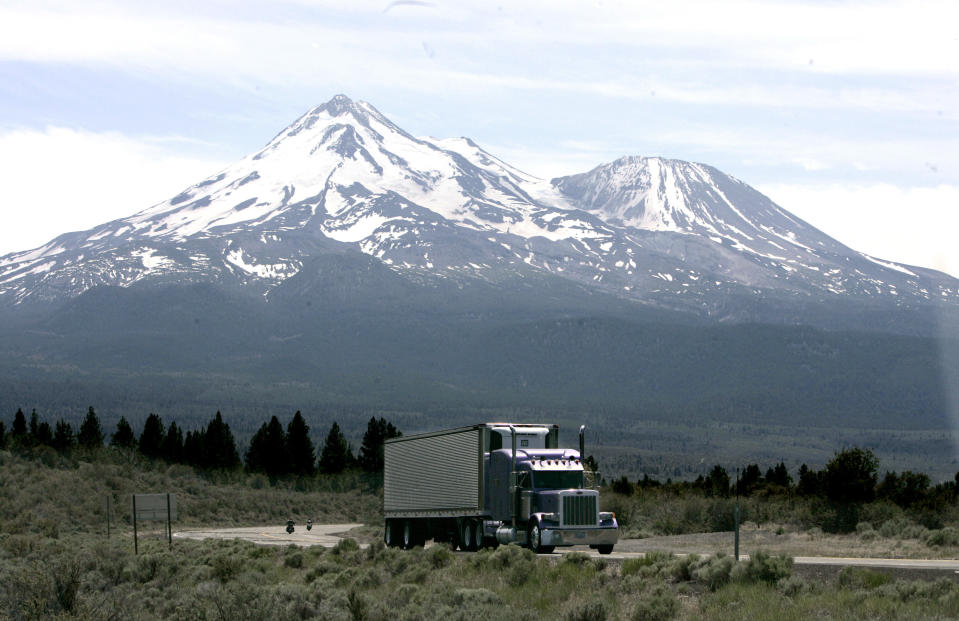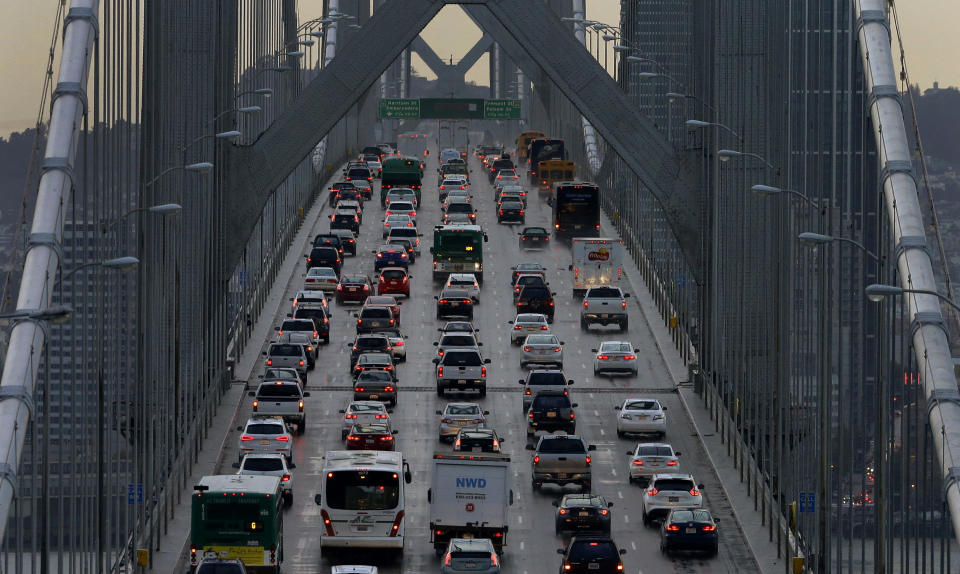SACRAMENTO, Calif. (AP) — The country's most populous state could become the first to require a portion of new truck sales be electric or “zero emission” vehicles as California grapples with how to clean up its worst-in-the nation air quality.
Home to the two largest ports in the country in Los Angeles and Long Beach, California has roughly 1.5 million medium and heavy duty trucks on the road that spew harmful pollutants as they haul freight to warehouses. The state's transportation sector accounts for 41% of all greenhouse gas emissions, a cause of climate change, and is a major source of ozone and particulate matter pollution that can cause respiratory problems.
Regulators estimate the new rules would result in roughly 74,000 zero emission trucks on the road in California by 2030, or about 4% of all trucks. California already has a rule requiring car makers to offer for sale specific numbers of clean cars. But Mary Nichols, chairwoman of the California Air Resources Board, said the truck rule would be the first of its kind in the world.
The board considered the new rule in a public hearing on Thursday that drew more than 100 public comments. The board won't vote on the proposal until next year. But Thursday was the last chance for advocates and opponents to weigh-in.
“Trucks are increasingly a major contributor to air pollution nationwide, but especially in our cities where they are among the largest sources of toxic emissions in vulnerable neighborhoods,” Nichols said.
If adopted, at least 15% of sales of heavy duty pickup trucks like the Ford F-250 and full size vans like the Chevrolet Express must be zero emission vehicles by 2030. That standard also applies to the heaviest trucks, including tractor trailers.
The standard is tougher for box trucks and delivery trucks, mandating at least half of all new sales be zero-emission vehicles by 2030.
The rules are part of the state's plan to have 100% zero emission truck sales by 2040. By then, state regulators say the phased-in limits could prevent more than 600 premature deaths due to poor air quality in California.
Sales requirements for the heaviest trucks would begin in 2024 and gradually increase until 2030. Sales requirements for pickup trucks would not begin until 2027.
The proposed rules continue California’s aggressive push on environmental regulations, which already include tougher emission standards on cars and trucks than the federal government imposes and a first-in-the-nation cap-and-trade system that requires big polluters to purchase credits to let them pollute.



